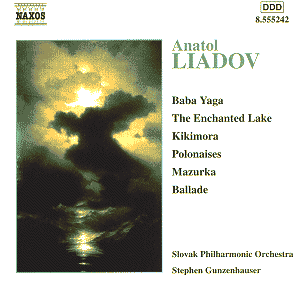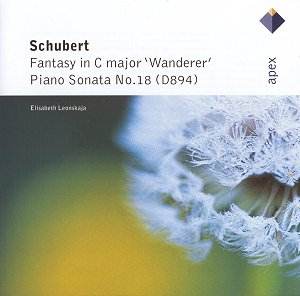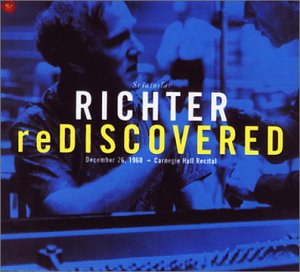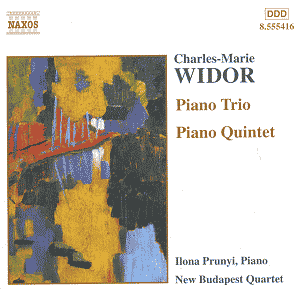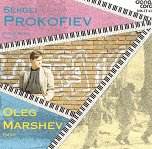 Composer: Sergei Prokofiev
Composer: Sergei Prokofiev
Works: Volume 1: Sonata No. 6 in A major, Op. 82; Dumka, Op. 65B; Visions Fugitives, Op. 22; Sonata No. 7 in B-flat major, Op. 83
Volume 2: Sonata No. 1 in F minor, Op. 1; Four Pieces, Op. 3; “Old Grandmother’s Tales,” Op. 31; Three Pieces, Op. 59; Sonata No. 8 in B-flat major, Op. 84
Volume 3: Sonata No. 3 in A minor, Op. 28 “From Old Notebooks”; 10 Pieces, Op. 12; Thoughts, 3 Pieces, Op. 62; March, Op. 89, No. 8; 4 Pieces, Op. 32; Sonata No. 5 in C major, Op. 38/135
Volume 4: Sonata No. 2 in D minor, Op. 14; 4 Pieces, Op. 4; Song without Words; Things in Themselves, 2 Pieces, Op. 45; Children’s Music, Op. 65; Sonata No. 4 in C minor, Op. 29 “From Old Notebooks”
Volume 5: Sonata No. 9 in C major, Op. 103; 4 Etudes, Op. 2; Pieces for Children; Sarcasms, Op. 17; Toccata, Op. 11; Sonatina, Op. 54, No. 1; Sonatina, Op. 54, No. 2
Performers: Oleg Marshev (piano)
Recording: Recorded in Concert Hall, Lodz (Volume 1 – November 1991, Volume 2 – May 1992, Volume 3 – May 1994, Volume 4 – April 1995, Siemens Villa, Berlin June 1995)
Label: DANACORD
Sergei Prokofiev’s piano music, a rich tapestry woven from the threads of Russian folk idioms, classical elegance, and modernist innovation, finds a compelling advocate in Oleg Marshev’s complete recordings for Danacord. This extensive five-volume series showcases not only the composer’s evolution but also illuminates the myriad influences that shaped his distinctive voice. Each volume encapsulates a spectrum of styles that reflect Prokofiev’s journey from the romanticism of his youth to the neoclassicism of his later years, all while capturing the essence of his innovative spirit.
Marshev’s interpretation is marked by a profound understanding of Prokofiev’s intricate rhythms and contrasting moods. The opening Sonata No. 6, with its blend of lyrical beauty and motoric drive, displays Marshev’s technical prowess and interpretative insight. His ability to navigate the turbulent waters of the first movement, characterized by its agitated themes, contrasts sharply with the serene, contemplative passages that follow. This duality is further exemplified in the slow movement, where Marshev draws out the melancholic lyricism with an almost orchestral breadth. In the Sonata No. 7, the frenetic energy of the finale is executed with a precision that mirrors Prokofiev’s own virtuosic pianism, yet Marshev also imbues it with a sense of spontaneity, capturing the essence of a performer in dialogue with the music.
The recording quality across the series is commendable, with a clarity that allows the listener to appreciate the subtleties of Marshev’s touch and dynamic range. Each note rings true, with the engineering ensuring that the nuances of the piano’s tone are preserved, allowing the listener to experience the full spectrum of Prokofiev’s harmonic language. The acoustic space in which these performances were recorded contributes to a vivid listening experience, enhancing the emotional weight of the music without overshadowing the clarity of Marshev’s playing.
Comparatively, while other notable recordings of Prokofiev’s works, such as Boris Berman’s or Frederic Chiu’s, offer distinctive interpretations, Marshev’s cycle stands out for its cohesive narrative arc and the way it encapsulates the evolution of Prokofiev’s style. Marshev’s approach is less about showcasing individual pieces in isolation and more about presenting them as part of a larger continuum, allowing the listener to grasp the composer’s development over time. For instance, the transition from the more straightforward lyricism of his early works, such as the “Old Grandmother’s Tales,” to the complexities of the late Sonatas, is expertly navigated, revealing connections and contrasts that might otherwise remain obscured.
The anthology is not without its challenges; the sheer breadth of Prokofiev’s output means that some lesser-known works, while charming, might not reach the heights of his more celebrated pieces. However, Marshev’s commitment to presenting a complete portrait of the composer is commendable. His performances of the more modest pieces, such as the delightful “Children’s Music,” are imbued with charm and a playful spirit that resonates deeply, enhancing the listener’s appreciation of Prokofiev’s range as a composer.
Marshev’s comprehensive recording of Prokofiev’s piano works not only enriches the existing discography but also serves as an invitation to delve deeper into the repertoire. His interpretations combine technical mastery with a profound emotional connection to the music, presenting Prokofiev not merely as a composer of the past but as a living voice whose music continues to speak with relevance today. This series is an essential acquisition for any serious student of piano music, offering both a scholarly resource and a source of auditory delight.
